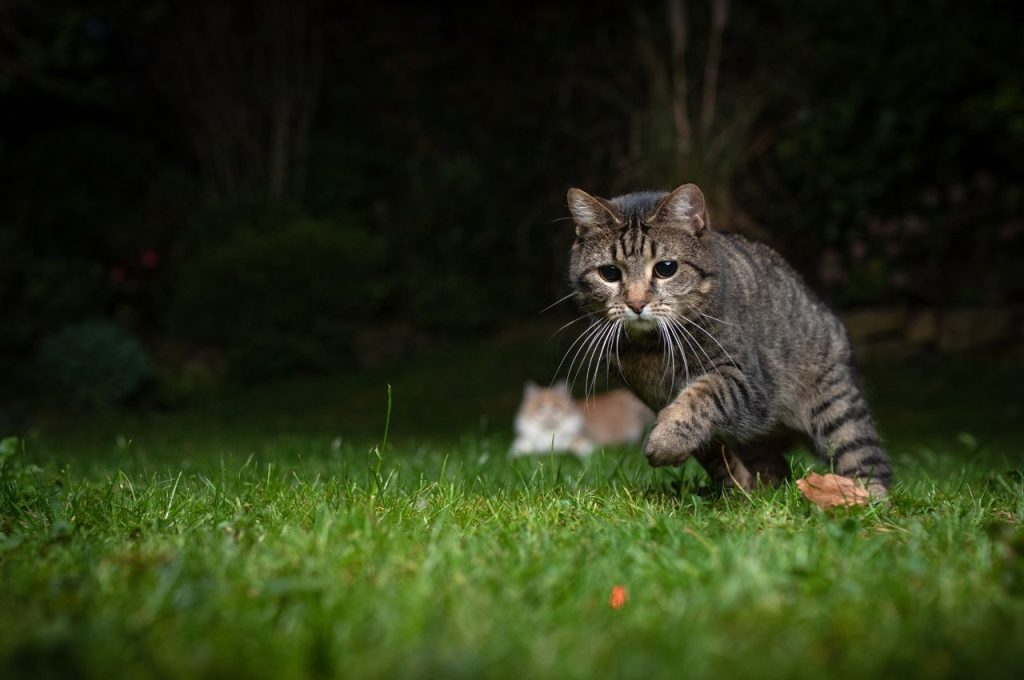Have you ever found yourself frantically searching for your beloved feline friend in the dark of the night? The sinking feeling in your stomach, the worry that creeps in with each passing minute, can be overwhelming. In these moments, every cat owner yearns for a guiding light, a set of proven strategies to quickly locate their lost cat and bring them back to safety.
If you find yourself in this difficult situation, fear not! In this guide, we will explore the essential steps and techniques to effectively find a lost cat at night, ensuring a quick reunion and peace of mind. When the sun sets and darkness envelops the world, cats possess an uncanny ability to blend into the shadows, making it challenging to spot them.
However, with the right approach, you can significantly increase your chances of finding your furry companion. From creating a calm and inviting atmosphere to using sound and smell to your advantage, we will delve into the tried-and-true methods used by experienced cat owners and experts alike.
How to Find a Lost Cat at Night
Losing a cat can be a stressful experience, especially when it happens at night. However, with the right approach and a calm mindset, you can increase your chances of finding your lost feline friend. In this article, we will provide you with step-by-step instructions on how to find a lost cat at night.

Stay Calm and Assess the Situation
The first thing you should do when you realize your cat is missing is to stay calm. Panicking will only cloud your judgment and make it harder to think clearly. Take a few deep breaths and try to assess the situation.
Start by checking the immediate area around your home. Cats are known for hiding in small, dark spaces, so make sure to thoroughly search your yard, garage, and any sheds or outbuildings. Look for any signs of your cat, such as paw prints or fur.
Gather Information
Once you have thoroughly searched your property, it’s time to gather information. Reach out to your neighbors and inform them that your cat is missing. Provide them with a description of your cat, including any unique markings or characteristics. Ask them to keep an eye out and to contact you if they spot your cat.
Additionally, create flyers with a clear photo of your cat and your contact information. Distribute these flyers in your neighborhood, at local pet stores, and veterinary clinics. The more people who know about your missing cat, the higher the chances of someone spotting them.
Set Traps and Use Lures
If your cat is still missing after the initial search, it might be time to set traps and use lures to attract them. Cats are attracted to familiar scents, so place their favorite blanket or bedding near the traps. You can also try using their favorite treats or a can of wet cat food as a lure.

Set the traps in areas where your cat is likely to pass by, such as near their food and water bowls or along their usual outdoor routes. Make sure to check the traps regularly and handle your cat gently once you’ve found them.
Utilize Technology
In today’s digital age, technology can be a valuable tool in finding a lost cat. Use social media platforms to spread the word about your missing cat. Post a photo and a description of your cat on your accounts and in local community groups. You can also consider using pet-finding websites and apps that help connect lost pets with their owners.
Additionally, consider using a pet tracker or a GPS collar for your cat. These devices can provide real-time location information, making it easier to locate your cat if they go missing again in the future.
Seek Professional Help
If all your efforts have been unsuccessful, it may be time to seek professional help. Contact local animal shelters, rescue organizations, and veterinary clinics to see if anyone has brought in a cat matching your description. They may have valuable information or be able to assist you in your search.

Remember, finding a lost cat takes time, patience, and persistence. Stay positive and continue to search for your furry friend. With these steps and a little bit of luck, you may soon be reunited with your beloved pet.
Frequently Asked Questions
Here are some commonly asked questions about how to find a lost cat at night:
Q: What should I do if my cat goes missing at night?
A. If your cat goes missing at night, the first thing you should do is stay calm. Cats are known for their independent nature, and they may wander off on their own. Begin by searching your immediate surroundings, such as your yard or nearby bushes. Use a flashlight to check dark corners or hiding spots. Make sure to call out your cat’s name and listen for any sounds or movements. Additionally, notify your neighbors and ask them to keep an eye out for your cat.
If you don’t find your cat, consider putting out some of their favorite food or treats near your home. This may entice them to come back. It’s also a good idea to put up flyers with your cat’s picture and your contact information in the neighborhood. Finally, contact your local animal shelters and veterinary clinics to see if your cat has been found or brought in.
Q: How can I attract my lost cat back home during the night?
A. There are several things you can do to attract your lost cat back home during the night. First, create a familiar and comforting environment by leaving out some of their favorite toys, bedding, or an unwashed piece of clothing with your scent on it. This can help your cat pick up your scent and find their way back.
Another effective method is to use strong-smelling food, such as tuna or wet cat food, to lure your cat back home. Place the food outside your door or in an area where your cat is likely to pass by. Cats have a keen sense of smell, and the scent of their favorite food can help guide them back home.
Q: Should I search for my lost cat in nearby areas at night?
A. It’s generally recommended to search for your lost cat in nearby areas at night, as cats are more likely to come out and explore during the cover of darkness. Start by searching your immediate surroundings, such as your yard, bushes, and any hiding spots your cat might be familiar with. Use a flashlight to check dark corners or under vehicles.
If you don’t find your cat nearby, expand your search to your neighborhood and the surrounding area. Cats are known to roam, so they may have ventured further than you expect. Make sure to bring a flashlight and call out your cat’s name as you search. Consider asking your neighbors for permission to search their yards or garages, as cats can sometimes get trapped in these areas.
Q: What can I do to prevent my cat from getting lost at night?
A. To prevent your cat from getting lost at night, it’s important to take some precautions. Firstly, keep your cat indoors during the nighttime, especially if they are not accustomed to going outside. This can greatly reduce the chances of them wandering off or getting disoriented.
If you do allow your cat outside during the night, make sure they are supervised or contained within a secure outdoor area. Install a cat enclosure or use a leash to keep them safe and prevent them from straying too far. Additionally, ensure that your cat is wearing a collar with identification tags that include your contact information. Microchipping your cat is also highly recommended, as it provides a permanent form of identification.
Conclusion
Finding a lost cat at night may seem like a daunting task, but with the right strategies and a calm mindset, it is possible to bring your furry friend back home safely. Remember to start by thoroughly searching your immediate surroundings, focusing on areas where your cat may feel safe and hidden. Utilize tools such as flashlights, treats, and familiar scents to attract your cat and guide them back to you.
Additionally, reach out to your community for help. Inform your neighbors, post flyers, and utilize social media platforms to spread the word about your missing cat. Many people are willing to lend a helping hand, and their support can make all the difference in your search efforts.
Finally, remember to stay persistent and never lose hope. Cats are resilient creatures, and even if they may be frightened or disoriented, they have an innate ability to find their way back home. By remaining patient, proactive, and keeping a positive attitude, you increase the chances of being reunited with your beloved companion. Trust your instincts and stay committed to the search, and soon enough, you may find your lost cat purring contentedly back in your arms.
